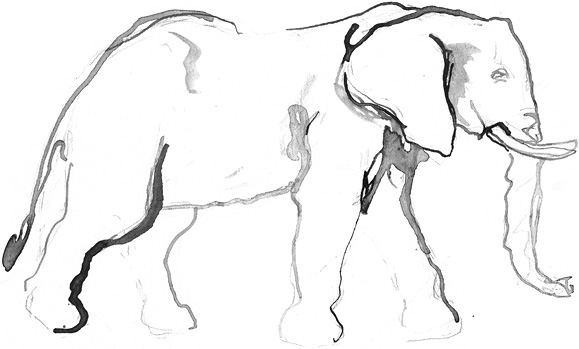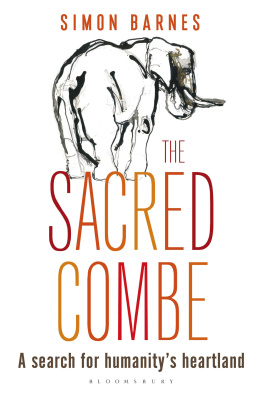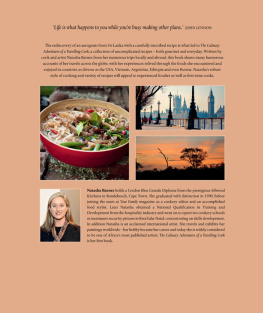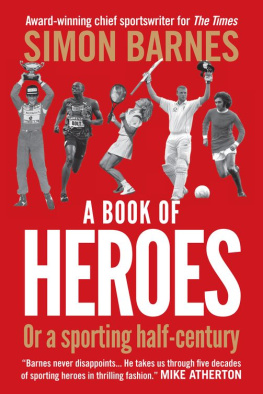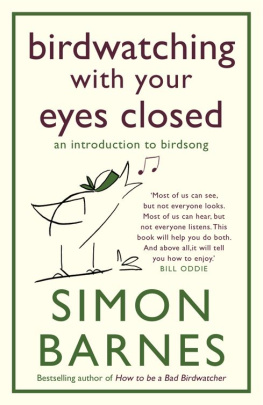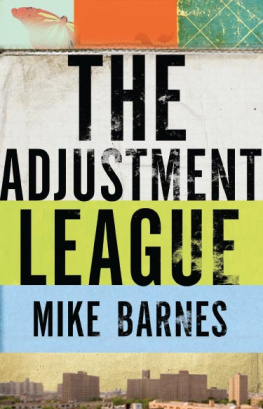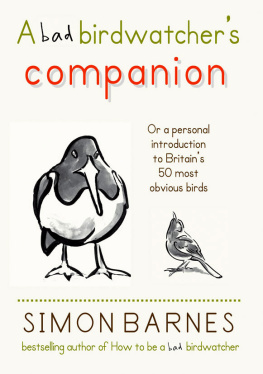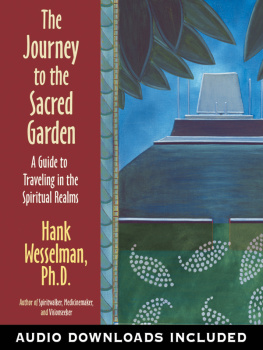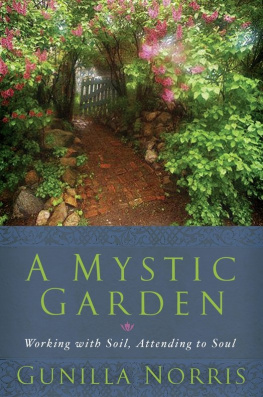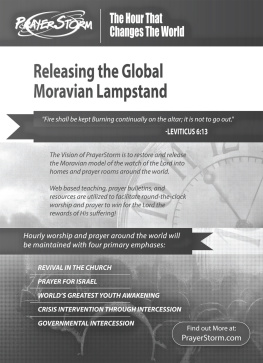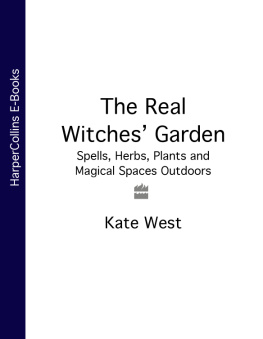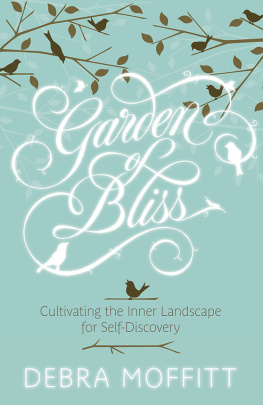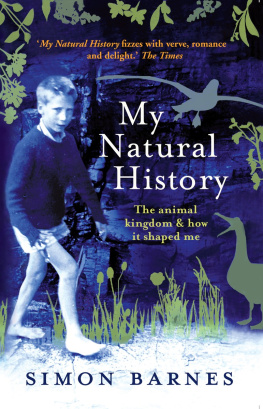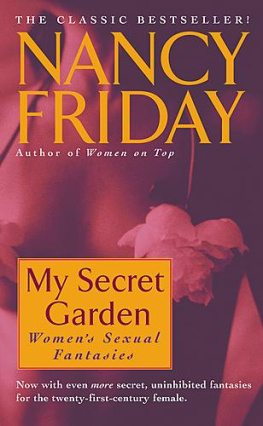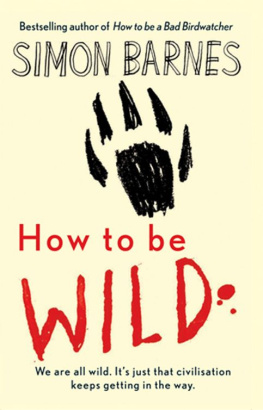THE SACRED COMBE
For CLW
who encouraged me to go
and who welcomed me back
THE SACRED COMBE
A Search for Humanitys Heartland

Simon Barnes
Illustrations by Pam Guhrs-Carr

Contents
It was the moment when I noticed someone was eating my house that I knew Id come home. It was my first night in the Valley: perfectly black, the air filled with swishing, ripping, munching. The house in question was a thatched hut a few yards from the river. There wasnt much of a window; the place wasnt designed for anything except sleep, but I got from my bed and peered through the insect-gauzed strip.
There were about half a dozen of them, a cheery and sociable little group lightly snacking on my roof and on the trees that surrounded the hut. Their footsteps made no sound, in the eerie fashion of elephants: vast, bedroom-slippered feet. They were quite unafraid: happy, relaxed, comfortable. I wondered what would happen if I were to step out among them, perhaps to attempt a mystical communion with them, perhaps to run for my life. But I had no real thought of doing either.
It was alarming, but it wasnt frightening. An important distinction. Being about a foot from a group of animals that could tear both me and my hut apart was curiously soothing. There was a thrill of wonder in this - wasnt I an adventurous devil to be in such a place and in such company? But that was only the superficial emotion. Behind it was a great soul-deep happiness: a profound sense of having arrived.
If I could have been sent straight back home - right now, after just four hours in the Valley, back to Hadley Wood, in Hertfordshire, where I lived in those days, a couple of miles beyond the furthest reaches of the Northern Line - I would have been satisfied with the trip and I would have been changed forever. The adventures of the rest of my first trip to the Valley were all wonderful enough, but they were just confirmation of what I learned on that first elephant-haunted night. The world was no longer the same and nor was I. I had been in the magical valley: I had found the sacred combe; I had entered the secret garden.
The great round wet loaves scattered around the hut when I rose at dawn were proof that it was not a dream. Or perhaps it was dream-dung. No matter. I had dreamed all my life of being in such a place; to be there at last, dung, ripped roof and all, blurred the distinction between dream and reality so completely as to make both concepts irrelevant. I walked on into my first day in the Valley. My Valley. Their Valley. Our Valley. Whatever: certainly magical. Sacred. Secret. And above all, home.
A few years earlier, I read John Fowless novel Daniel Martin : brilliant, but alas, only intermittently. All the same, something of the book stayed with me. A bit like those elephants. The eponymous hero is musing on loss, and with it the sense of finding, or almost finding. He then touches on an author, Nicolas-Edme Restif de la Bretonnne, who spent his childhood in a Burgundy village around 1740, and wrote an autobiography Monsieur Nicolas : He tells how one day, his father finding himself without his usual shepherd, he was allowed to take out the family flock; and how, wandering with it, he came on a secret valley in the hill behind the village. He had never heard any one speak of it before. It was miraculously lush, green, secret, and full of birds and animals a hare, a roebuck, a pair of wild boars mating. A hoopoe, the first he had ever seen, flew down and began feeding in a tree of wild honey-pears. He felt these creatures were in some way tamer and more magical here than outside, so that he had a sense of trespassing.
It is something deep in all of us, this valley. It is buried in all our memories, even though we have never been there. It is as old as humanity: this place set apart from the common run, this place where humans are at peace with the rest of creation. We may be trespassers, but the owners dont really mind. Our trespasses are forgiven. The place exists in our imaginations, in our species-memories; it exists in a long-lost golden day of childhood, in the memory of an idyllic doomed love affair; it exists sometimes in an actual place. Often enough, a place we darent go back to, for fear that it has changed too drastically. Or we have.
Fowles describes it as a place outside the normal world, intensely private and enclosed, intensely green and fertile, haunted and haunting, dominated by a sense of magic that is also a sense of a mysterious yet profound parity of all existence.
Parity? Parity with elephants? Are we humbling ourselves here? Or exalting ourselves?
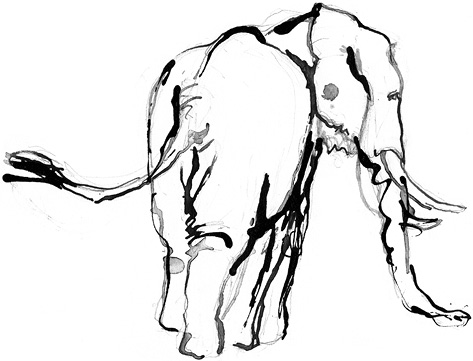
Jumbo
Bought by PT Barnum, eventually joining London Zoo where he acquired his name; jumbe , Swahili for chief, is the likely origin.
Kala Nag
Co-star in the Kipling story Toomai of the Elephants.
Babar
Green-suited elephant who brought the wisdom of the west to the elephants and became king, in the stories by Jean de Brunhoff.
Castor and Pollux
Inhabitants of the Paris Zoo, eaten by wealthy Parisians during the Siege of Paris in 1870.
Lulu, the Blue Peter elephant
Ran amok in the studio during the television programme previewing the Blue Peter journey to Sri Lanka. My father was a Blue Peter producer at the time.
Hathi
Wise elephant in Kiplings Jungle Book , narrator of the parable in How Fear Came.
Ganesh
Elephant-headed Hindu god. Remover of obstacles, patron of arts and sciences, master of wisdom, lord of beginnings.
Raja
Carried the eye tooth of the Lord Buddha for many years during the annual Perahera at Kandy in Sri Lanka, walking only on silk, for his feet were too sacred to touch the earth. On two occasions separated by some years, he attempted to attack my father for the various inconveniences he experienced during filming for Blue Peter.
Max
Circus elephant whose death traumatised Pistols Scaramanga in Ian Flemings The Man with the Golden Gun . According to the author of the Secret Service file that M reads: I see in this dreadful experience a possible reason for the transformation of Scaramanga into the most vicious gunman of recent years.
She-elephant
Vocal during the dawn of creation in Narnia, in CS Lewiss The Magicians Nephew.
The elephants child
From Kiplings Just So Stories ; he was the best elephant writer. The elephants child had her short stubby nose stretched into a trunk by a crocodile who wanted to have elephants child for breakfast.
Toung Taloung
The Sacred White Elephant of Burma, purchased by PT Barnum for $250,000, and ever since an expression used to describe something far more expensive than its worth.
The Kilimanjaro elephant
Had tusks that weighed 237lb and 225lb; no other tusk has weighed more than 190lb.
Echo
Star of Cynthia Mosss documentary and book Echo of the Elephants . I wanted to have an elephant matriarch that the audience could recognise easily, and I thought she would be the one I could find more easily. Shes also very beautiful.
